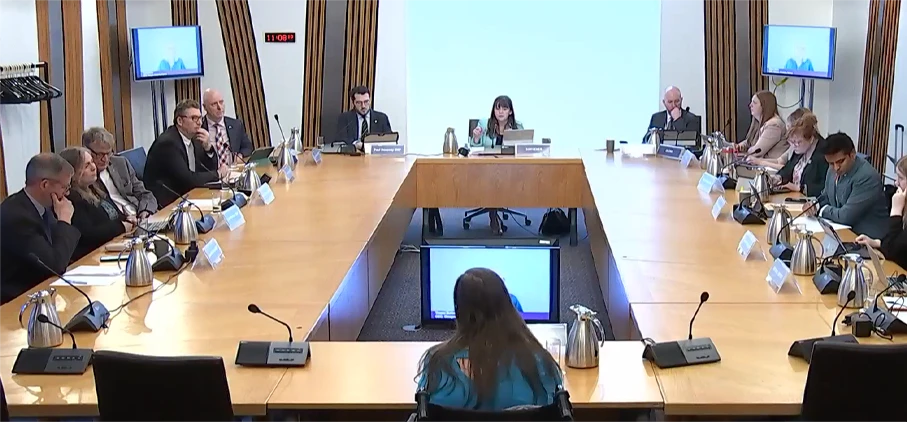Dr Gordon Macdonald, CEO of Care Not Killing, which spearheads opposition to the Bill said:
“Although welcome that the Committee didn’t back the botched BIll, in view of the evidence the MSPs heard and the view of the Scottish Government that the Bill isn’t legislatively competent, the Committee should have recommended the Bill should be rejected at Stage 1.”
He said:
“The scrutiny process of the Bill has been wholly inadequate. With 7 of the 10 members of the Health Committee having signed up to support the Bill when it was first proposed, it raises significant questions about the rigour of the scrutiny process.
“Dr Sandesh Gulhane MSP who chaired the Medical Advisory Group for the Bill, had a clear conflict of interest and, in our view, should have recused himself from the Committee’s deliberations.
“The Presiding Officer signed off the Bill as being legislatively competent, but has not published the legal advice she received despite the competence of the Bill being called into question.”
He added:
“The evidence they received was so overwhelmingly critical of the proposals and the drafting of the Bill, including its lack of robust safeguards, practical workability and the implications for patient safety, that more and more MSPs are coming down on the side of voting against the Bill at Stage 1.
“This Bill is much too important to have any shadows of doubt hanging over the work of the scrutinising committee or the decisions of the Presiding Officer and the wider Parliamentary Bureau.”
While expecting MSPs will vote the Bill down, he pointed to other crucial flaws in the Bill which exceeds Holyrood’s powers, is riddled with shortcomings and said:
“Someone in the Scottish Government’s own legal team drew up the Bill … but the SNP administration believe it contains measures which lie outwith Holyrood’s powers.
“Health Secretary Neil Gray dropped a bombshell when he told the committee last October ‘the bill in its current form is outside the legislative competence of the Scottish Parliament’.
“Mr Gray raised concern about a section of the Bill that would allow ministers to specify an ‘approved substance’ to be provided to terminally ill people to end their own life.
“He said that section appeared ‘to relate to the reserved matter of medicines, medical supplies and poisons’ in the Scotland Act.
“The health secretary said several other areas of the bill could relate to reserved regulations of the health professions.”
Mr Gray also highlighted a provision of the bill that would allow ministers to specify what qualifications and experience medics would need to be allowed to be involved in assisted dying, as well as a provision that would require medics to take into account a second opinion from a colleague on a termination request.
He also said a section of the Bill that would grant a right to conscientious objection could also be outside Holyrood’s devolved powers.
- The Bill’s policy memorandum notes the possibility of using orders under the Scotland Act 1998, such as a section 30 Order, to implement the Bill.
- A Section 30 order is a piece of secondary legislation that can be used to increase or decrease – temporarily or permanently – the Scottish Parliament’s legislative authority.
- Such an order was used to allow Hoylrood to stage the 2014 Scottish independence referendum.
- The Government said “further processes would have to be gone through in order to bring the Bill within competence”.
- Mr Gray said that the process of a Section 30 order generally takes 12-18 months and requires the cooperation of the UK Government.
Subsequently, three prominent Scottish legal academics from Glasgow, Strathclyde and Edinburgh Universities have written to the Health Committee and stated that the whole Bill may be outside the legislative competence of the Scottish Parliament because it relates primarily to medical regulation.
He said
“If it wasn’t so serious, with the lives of thousands of vulnerable Scots being put at risk by this Bill, you might be forgiven for thinking this was the plot of a Yes Minister episode.
“It seems beyond belief that the legal experts who prepare all the Government’s Bills drafted this botched Bill which the Cabinet Secretary has himself described as being outside the legislative competence of the Scottish Parliament.
“But I remain confident MSPs will, for the third time, vote against legalising assisted suicide.”
He concluded:
“With the NHS in Scotland struggling and facing resource pressures, long waiting lists, shortage of GPs and 1 in 4 cancer patients not having all their palliative care needs met, this Bill is extremely dangerous for the most vulnerable in society. People will feel pressure to opt for an assisted suicide so as not to be a burden and will be provided with assistance to die within 3 weeks whilst having to wait months or years for essential treatment or a hospice place. MSPs should be sorting out Scotland broken health care system and properly resourcing palliative care before even thinking about legalising assisted suicide.”


